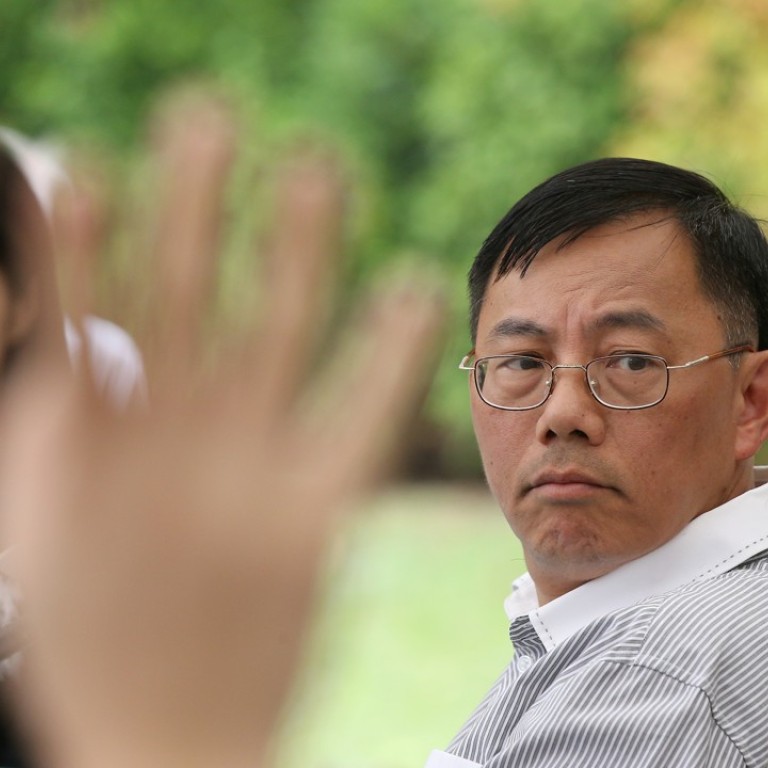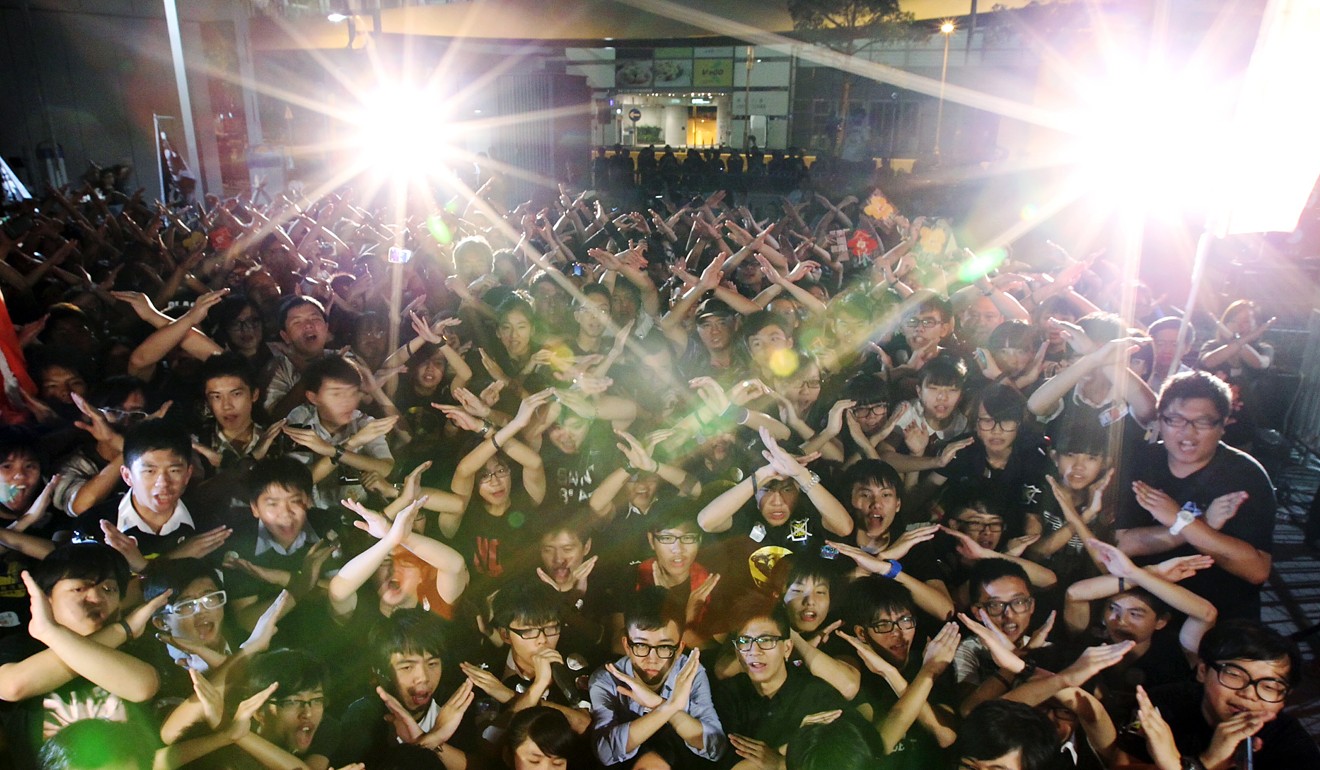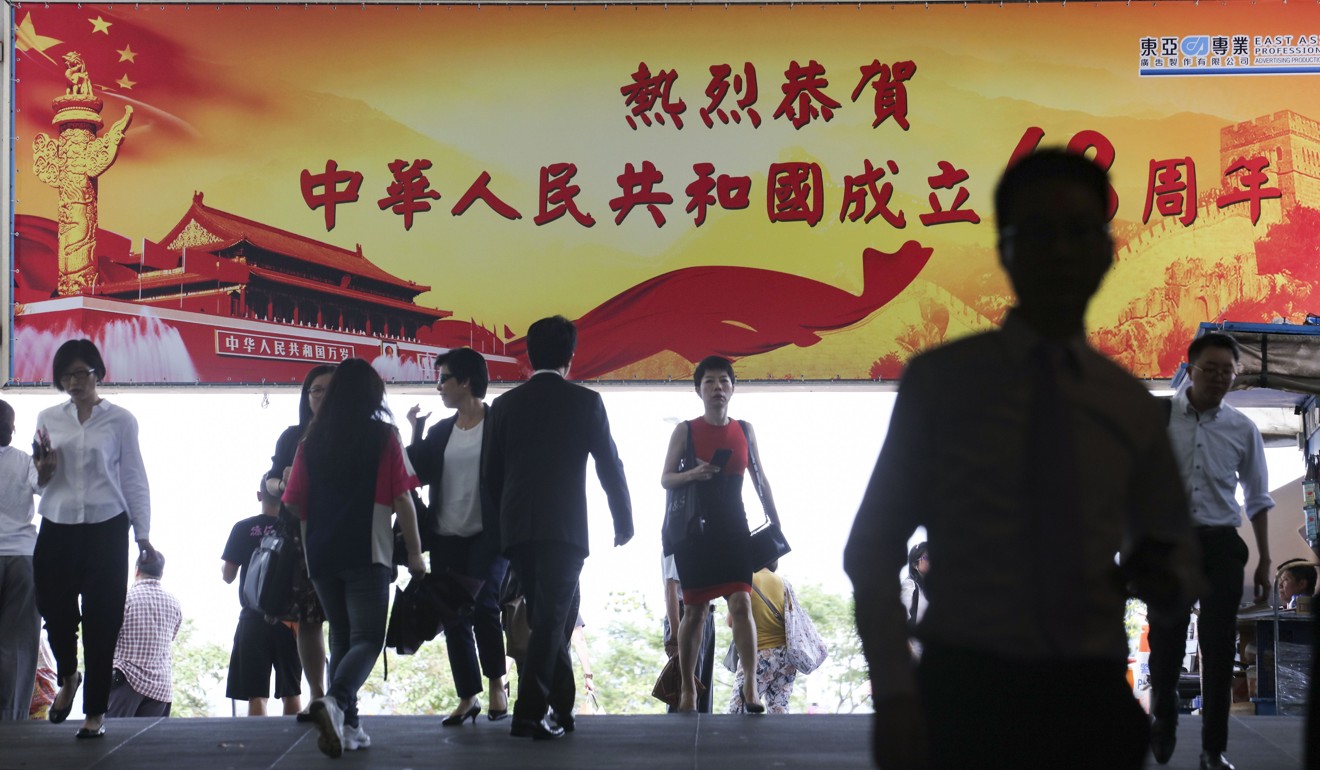
'Sense of fun needed in Chinese national education': Hong Kong teachers call for carnivals and school trips
Survey by Hong Kong Federation of Education Workers finds 184 out of 192 teachers said their schools organised special activities to celebrate National Day
More government resources are needed to teach national education through the increasingly popular methods of carnivals, trips and lectures, according to a survey by the second-largest teachers union in Hong Kong.
The Hong Kong Federation of Education Workers received replies from 192 teachers, including 154 from secondary schools and 28 from primary schools, on how schools taught national education and National Day celebrations to students.
“Instead of setting up an independent subject, we should think about better ways to conduct national education in a penetrative and cross-disciplinary style,” said Wu Siu-wai, vice-chairman of the federation.

National education is a contentious subject in Hong Kong. In 2012, plans to make the subject compulsory were dropped after students and parents protested against the proposal because the were worried the classes would amount to “political brainwashing”. Schools were then left to decide whether to offer such classes.
The survey from the pro-Beijing federation found that 184 out of 192 teachers said their schools organised special activities to celebrate the founding of the People’s Republic of China on October 1 this year. Among which, 27 per cent said the schools chose to stage a party or carnival, which achieved the greatest gain in popularity, 14 percentage points more than last year, among all types of activities.
Apart from National Day festivities, an overwhelming majority of teachers – 87 per cent – said they used trips to mainland and 47 per cent said they used lectures by head teachers.
These two were the fastest emerging forms with year-on-year increments of 20 and 16 percentage points respectively.

More than half of teachers said the government should facilitate teachings on China and the “one country, two systems” model of governance it uses for Hong Kong.
Requests from teachers included more staff, more funding and more teaching materials.
The survey was conducted from October 3 to 17.
Carrie Lam walking a tightrope on national education
Both Leung Chun-kit, a primary school principal and federation vice-chairman, and Ng Pik-kin, a secondary teacher and federation committee member, said parties and carnivals attracted students to learn about Chinese history and culture more than serious speeches delivered by guest speakers.
Wu said schools relied more on trips to mainland cities because there were more government resources to fund the trips, while there was less project-based learning because it had become less popular with pupils.
Chinese history rule for Hong Kong secondary schools stokes fears of renewed push
When asked if critical thinking skills would be lost if national education was conducted in lighter learning, Wu said, “When it’s time to celebrate the National Day, we should just celebrate and have fun. Students can always learn to think critically in other classes and activities.”
Wu said he did not need to explain to pupils why Facebook and Google are censored on the mainland during national education field trips because it was “a well-known fact”.
“When in Rome, do as the Romans do,” Wu said.

